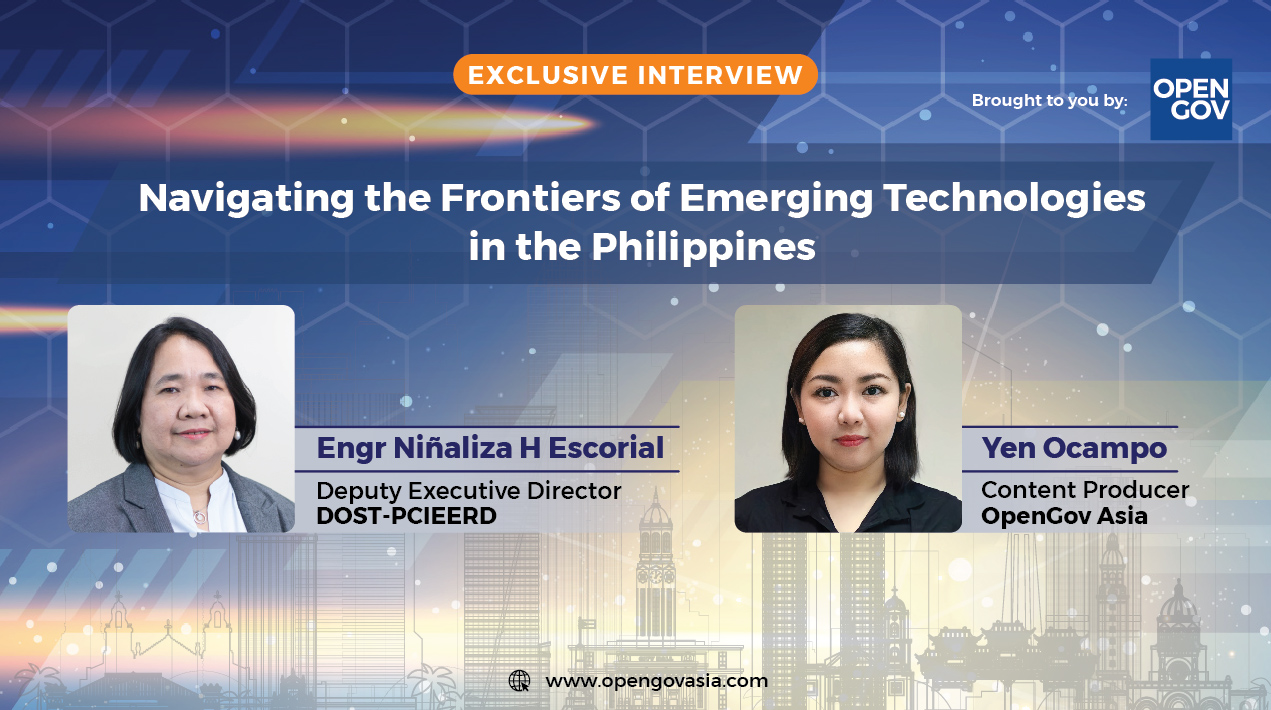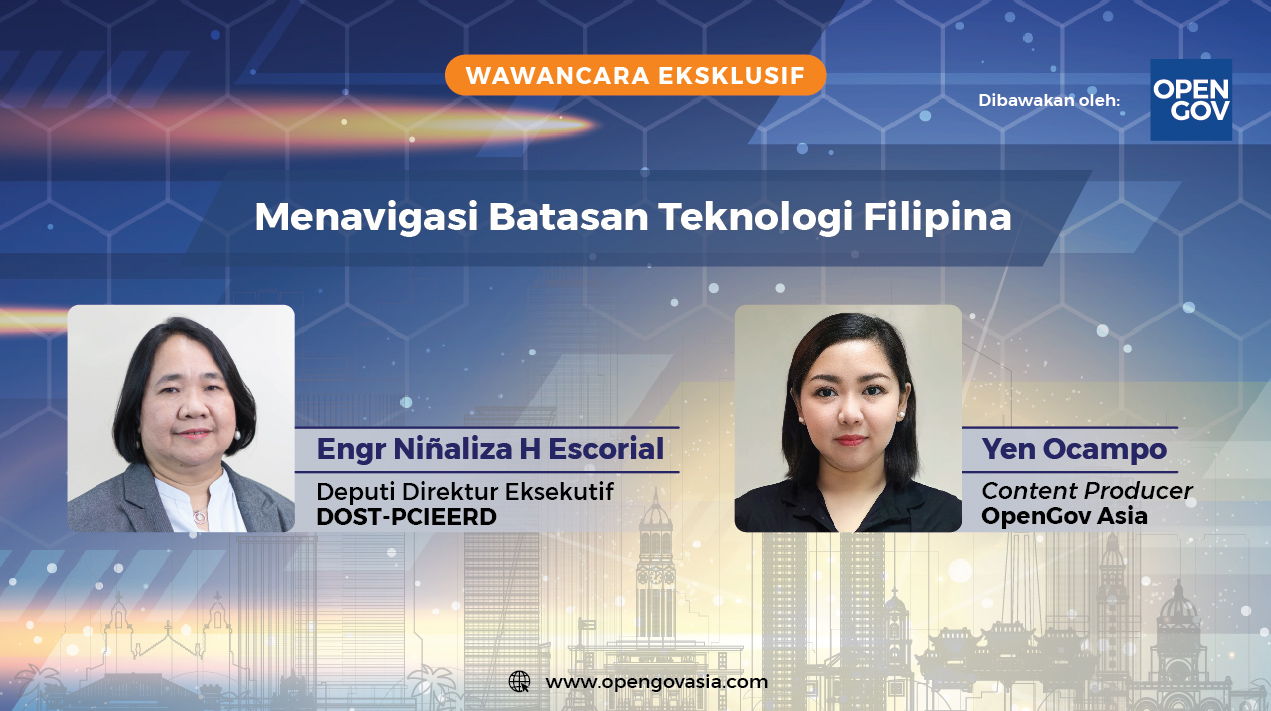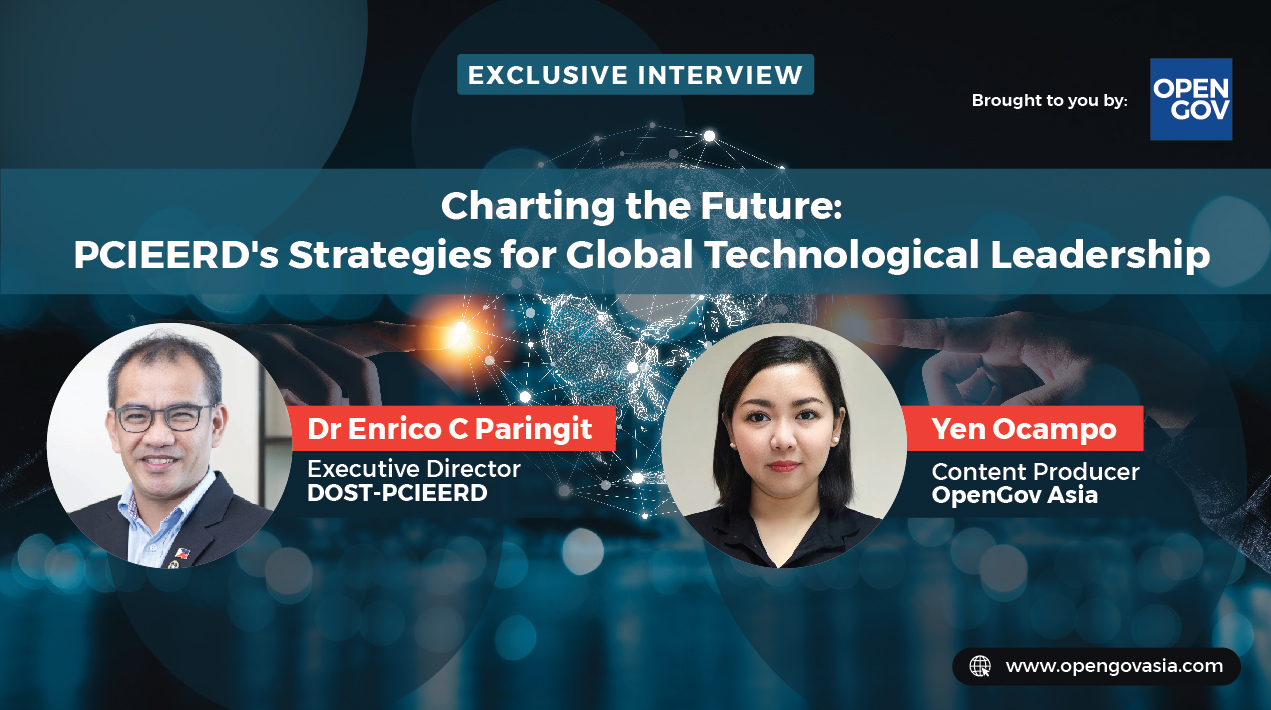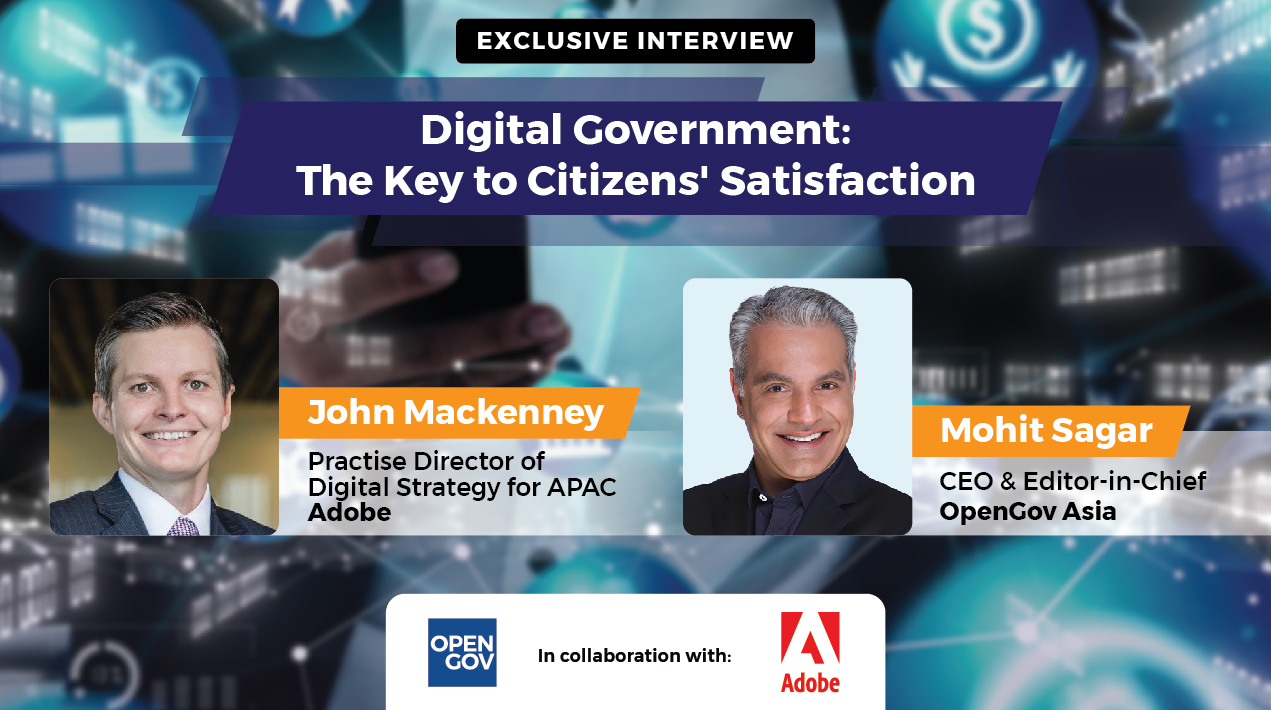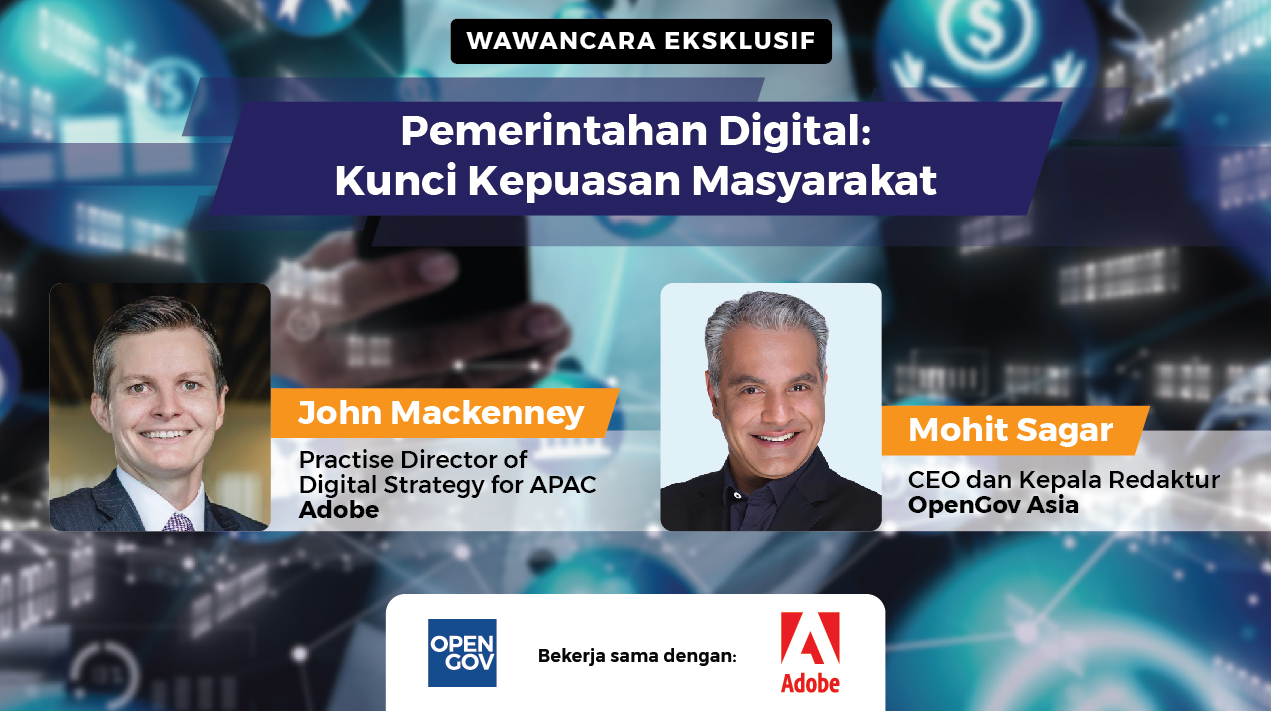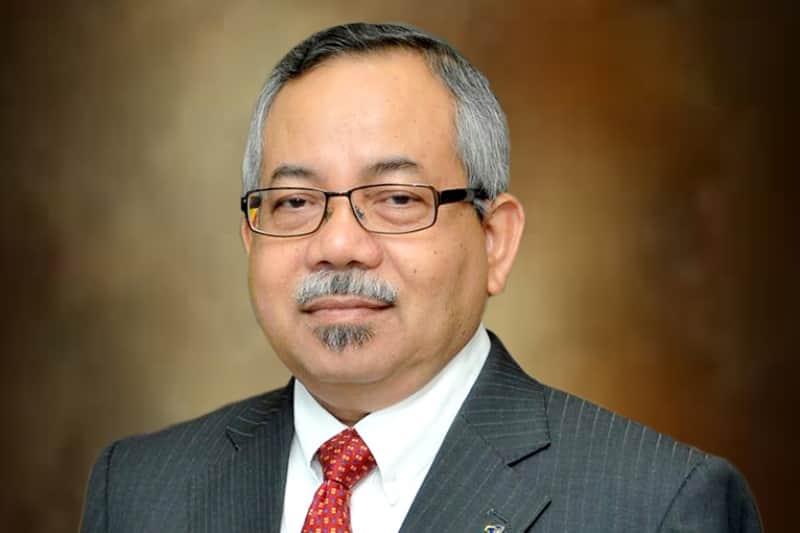
Recently, OpenGov had the chance to hear from Tan Sri Mohamad Zabidi Zainal, Director General, Public Services Malaysia, who shared what he believes public servants must realise and address before they launch themselves into this new era of digital transformation.
“Today, nations throughout the world are facing challenging times. We are at the age of the technology curve, where technology will change the way we work and how our lives are… The scale and complexity will be much bigger than anything we have experienced before,” stated Tan Sri Mohamad Zabidi Zainal.
During his remarks, he discussed how society will navigate through what he calls ‘The Fourth Industrial Revolution’.
“This Fourth Revolution has introduced us to the tremendous potential of technological breakthroughs, from robotics to nano-technology and internet of things to healthcare analytics, from smart cities to driverless vehicles” exclaimed Tan Sri Mohamad Zabidi Zainal, “These are trends that will require considerable support from government.”
“New policies and regulations will have to be formulated to protect the privacy and rights of organisations and businesses,” stated Tan Sri Mohamad Zabidi Zainal, “The autonomous vehicle is a case in point, Google is prototyping vehicles on the road with 1 million miles of vehicle testing and Uber is already planning for a future scenario in autonomous driving.”
It is just a matter of time before transport legislation is influenced by the growth of fully autonomous vehicles. Tan Sri Mohamad Zabidi Zainal makes a valid point, recognising that digital transformation will have a greater impact on our daily lives, than we could ever imagine.
“The Government will have to deal with this and align itself to these 21st Century technological, economic, and social gravities,” Tan Sri Mohamad Zabidi Zainal exclaimed.
The World Economic Forum, back in 2011, published a seminal report on The Future of Government – Lessons Learned from around the World. This report presented practical proposals – illustrated by some emerging best practices – to stimulate engagement with and between public and private stakeholders to build citizen-centric and innovation-driven government priorities and practices for the 21st century.
It was predicted that leading governments will transform themselves into FAST organisations, meaning they will be Flatter, Agile, Streamlined, and Tech-Enabled. Tan Sri Mohamad Zabidi Zainal emphasised that the Malaysian Government will be working to transform itself in a number of ways.
“Firstly, bringing the government and the people closer. Secondly, enhancing administrative operations by redesigning business processes and using business analytics. Thirdly, stepping up decision making so that data and information are available to policy makers, while building collaboration within and across ministries and agencies. Fourthly, spending across sectoral collaboration, to solve complex problems given economies of scale, while utilising innovative and practices,” Tan Sri Mohamad Zabidi Zainal proclaimed.
These factors are set to transform the way that government embraces technology, in such a way that it will allow for stronger and more intelligent administration.
“Agile and analytic abilities are critical for effective governments. This covers organisational structure, processes and service delivery vortex. It also means we must have an agile workforce, of highly skilled knowledgeable workers with problem solving capabilities, supported by real-time data and business intelligence,” Tan Sri Mohamad Zabidi Zainal said.
“Streamlining of positions backed by significant technological and workforce advances will drive the FAST model of Government. Finally, the future Government must be fully tech-enabled, supported by a tech-friendly workforce. The network world will require an information infrastructure that supports new movement in collaboration, information, Governments, and ultimately, service delivery to the citizens.”
The Public Service Department embarked on a transformative agenda through the Public Service Transformation Framework. This framework consists of five strategic thrusts, those being:
To revitalise talent that is competitive, highly knowledgeable, competent, to increase performance, productivity, and innovation
To re-engineer positions, to increase capability and drive an agile and flexible organisational structure, strongly supported by technology
To enhance service delivery for citizen-centric services to provide fast, accurate, quality, responsive, and proactive public service delivery
To promote the inclusive approach that incites engagement, networking, and strategic collaboration
To enculture shared values, to construct a culture of good values, ethos, and integrity
“As you can see the JPA addresses all of the key principles of the FAST Model of the Future of Government. These principles have been incorporated in the Eleventh Malaysia Plan,” stated Tan Sri Mohamad Zabidi Zainal.
It has become evident that many agencies throughout Malaysia have developed and adopted sustainable practices to responding to revolutionary changes in technology.
To this, Tan Sri Mohamad Zabidi Zainal pointed out that there is a convergence of technology forces which must be accounted for.
“The nexus of converging forces seems to be more appropriate in designing the required technological and digital architecture for transformation. This approach includes the convergence of: social networking, mobile, cloud computing, and information,” Tan Sri Mohamad Zabidi Zainal explained.
Tan Sri Mohamad Zabidi Zainal went on to explain the effects of these four converging forces, on the work of Government. One of the more interesting points made, was related to the impact of social media and big data, leading organisations to redefine their relationships with citizens, clients, and employees.
“For private sector, analysing large data sets is proving to be a powerful, competitive differentiator in spending business market share. For the public sector, big data provides a huge potential of driving public value at all stages and delivering the best services to citizens,” stated Tan Sri Mohamad Zabidi Zainal, “It has been recognised that we must build a better public sector with a strategic approach to managing big data and new technologies.”
To this point, Tan Sri Mohamad Zabidi Zainal explained that data should be leveraged strategically in four ways: to increase citizen feedback, to bring user perspectives into the design of public policies and services, find innovative ways to implement policies and deliver services, and to improve diversities and tools to assess the impact of policies which will increase accountability.”
Presently, a total of 2,434 services have been consolidated through OneServe counters. Tan Sri Mohamad Zabidi Zainal announced that the Public Service Department will continue to provide new platforms to improve government service delivery and operations through such innovative and accessible methods. This follows their transformation into a FAST organisation, which is the Future of Government.



